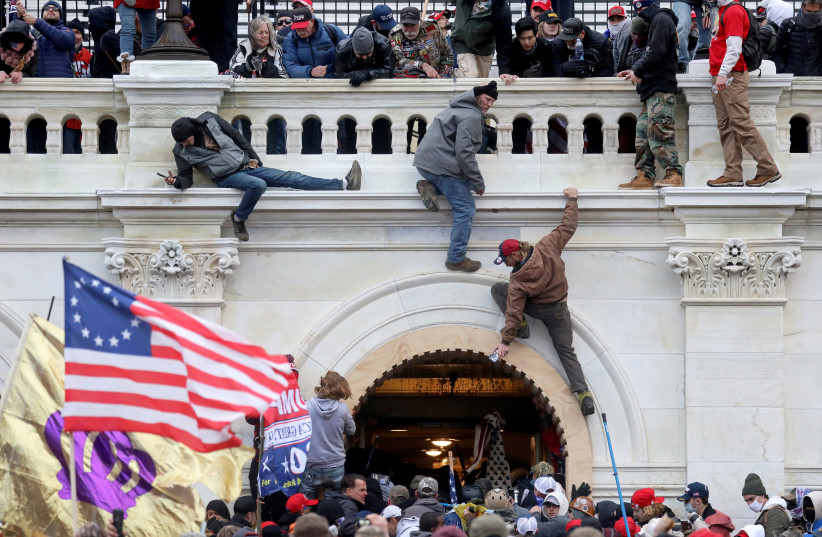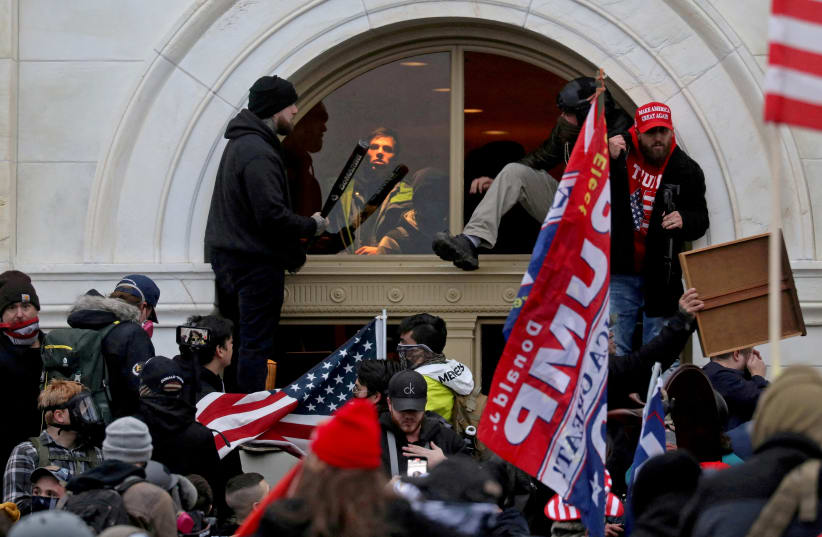The trial of Stewart Rhodes, the founder of the far-right Oath Keepers militia, and four others begins on Tuesday in what will be the most high-profile case so far in the Justice Department's investigation into the January 6, 2021 attack on the US Capitol.
Rhodes and his co-defendants kelly Meggs, Thomas Caldwell, Jessica Watkins and Kenneth Harrelson are the first people in more than 10 years to face federal charges of seditious conspiracy under a Civil War-era statute that is rarely prosecuted and carries a statutory maximum sentence of 20 years in prison.
What are the charges against the Defendants?
seditious conspiracy is defined as two or more people plotting "to overthrow, put down or to destroy by force the government of the United States."
Supporters of former President Donald Trump, a Republican, stormed the US Capitol in a failed attempt to overturn his 2020 election loss to Democrat Joe Biden after Trump falsely claimed the election had been stolen from him. Five people died during and shortly after the riot, and about 140 police were injured.
The five accused Oath Keeper defendants also face charges of conspiring to obstruct and obstructing an official proceeding, which carries up to 20 years in prison, and conspiring to prevent an officer from discharging duties.


In addition, the defendants who physically entered the Capitol building - Watkins, Meggs and Harrelson - are charged with property destruction. Watkins separately faces a civil disorder charge, while the other four are each charged with tampering for allegedly trying to destroy evidence.
The indictment against the five alleges they plotted to use force to oppose the peaceful transfer of power from Trump to Biden. Prosecutors have also said the defendants trained and planned for January 6, the day Congress met to certify Biden's win.
Prosecutors say Rhodes led and coordinated the alleged plot, which involved the defendants setting up a "quick reaction force" and stockpiling weapons at a northern Virginia hotel.
The indictment alleges Caldwell helped coordinate the quick reaction force teams, while Watkins, Harrelson and Meggs are accused of storming into the Capitol building in a military-like formation. They are not accused of carrying guns onto Capitol grounds.
How long should the trial take?
Jury selection will begin on September 27, and it is expected to last for several days. The jury will be partially sequestered, in an effort to ensure jurors do not accidentally come into contact with members of the media covering the trial inside the courthouse.
Presiding US District Judge Amit Mehta has estimated the trial could last up to six weeks.
It will feature testimony from dozens of witnesses, as well as video clips from the day of the attack, and both audio and text message exchanges among the defendants.
Attorneys for some of the defendants are expected to defend their actions in part by arguing that they believed they could be called to action if Trump invoked the Insurrection Act, a law that empowers the president to deploy troops to suppress civil disorder.
However, they will not be permitted to claim that Trump ordered them to march on the Capitol or asked them to stop Congress from certifying the 2020 election results.
The Oath Keepers is an anti-government militia whose membership includes current and former US military and law enforcement personnel.
Dozens of members or associates of the Oath Keepers have been charged in connection with the Jan. 6 attack. Three have pleaded guilty to seditious conspiracy charges. Another four Oath Keeper defendants accused of seditious conspiracy will go to trial on November 29.
